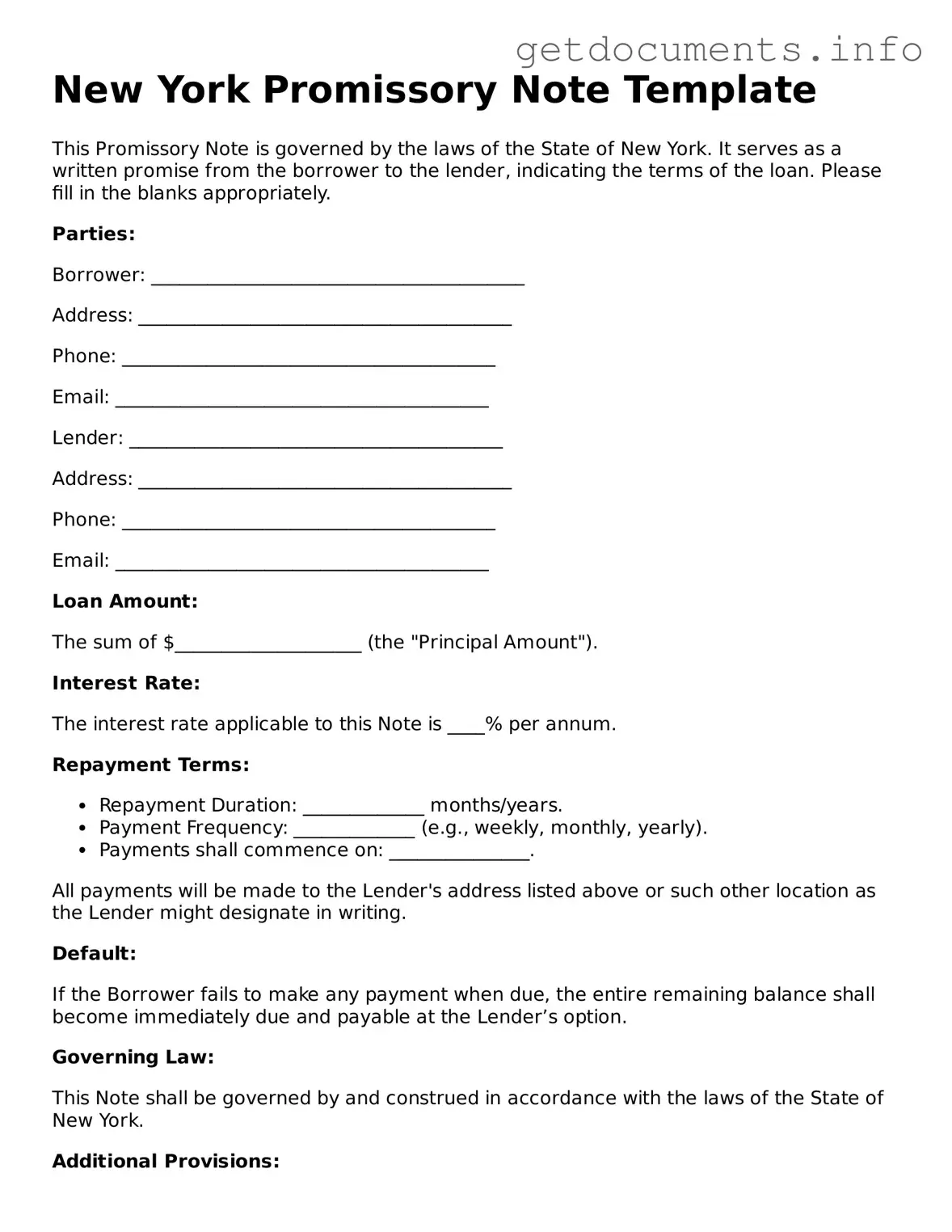Free Promissory Note Template for New York
A New York Promissory Note is a written promise to pay a specified amount of money to a designated party at a determined time. This legal document outlines the terms of the loan, including interest rates and payment schedules, ensuring clarity and protection for both the lender and borrower. To get started with your own Promissory Note, fill out the form by clicking the button below.
Access Promissory Note Editor

Free Promissory Note Template for New York
Access Promissory Note Editor
Got places to be? Complete the form fast
Fill out Promissory Note online and avoid printing or scanning.
Access Promissory Note Editor
or
⇩ PDF File
